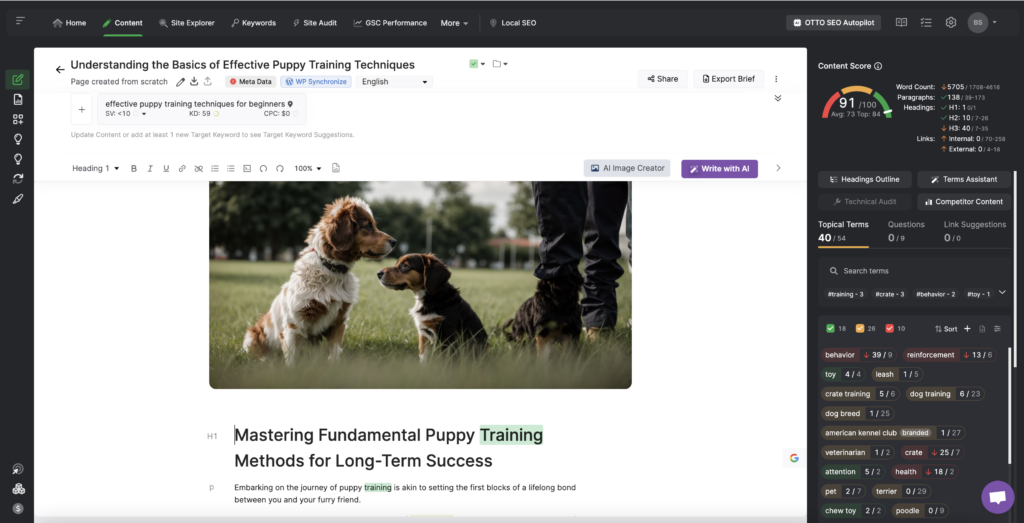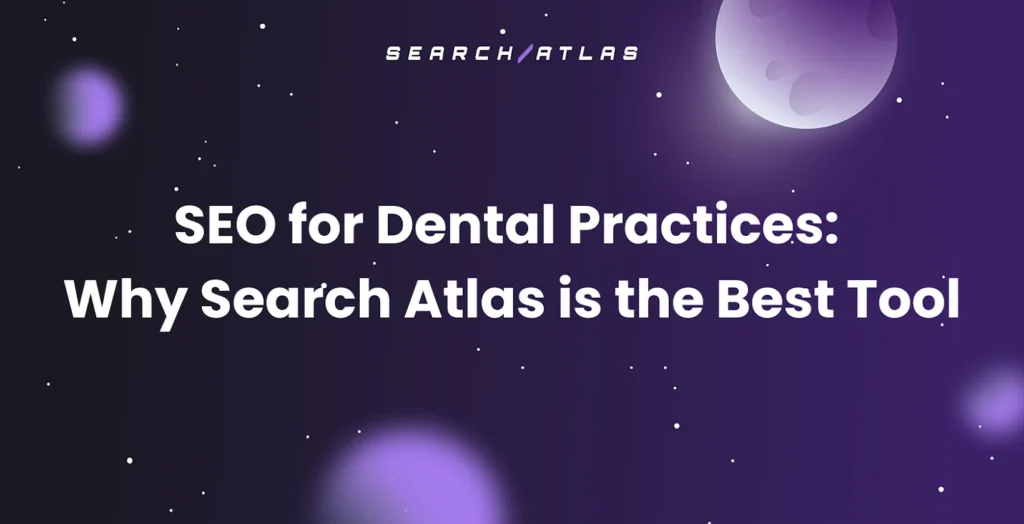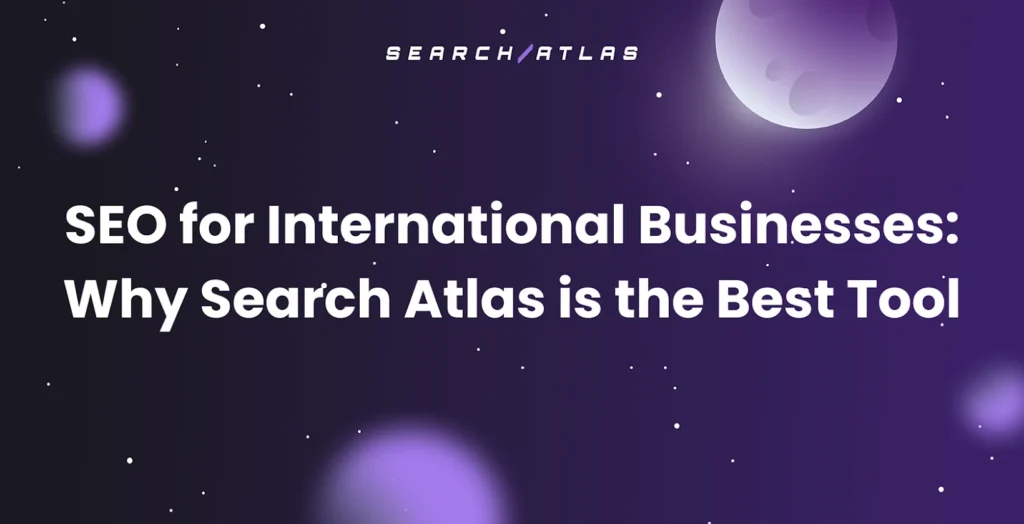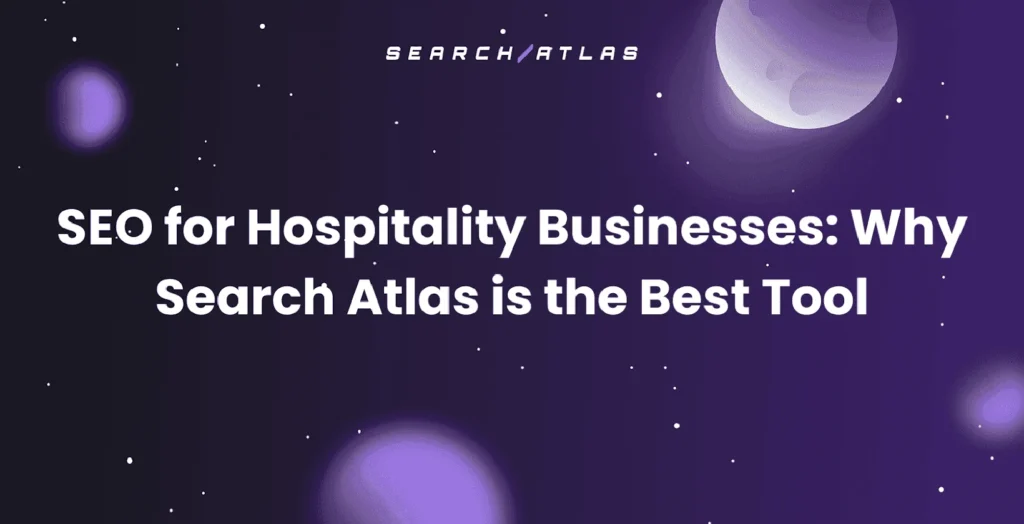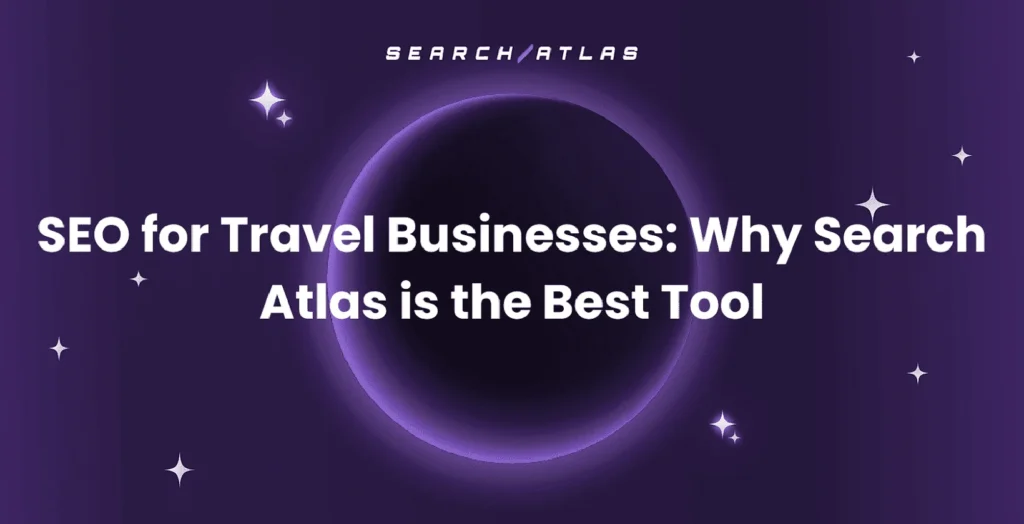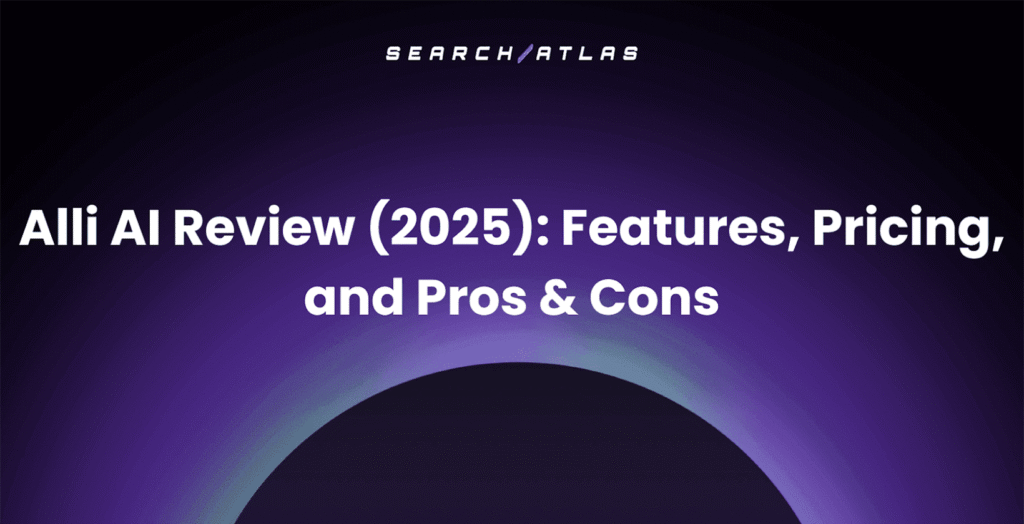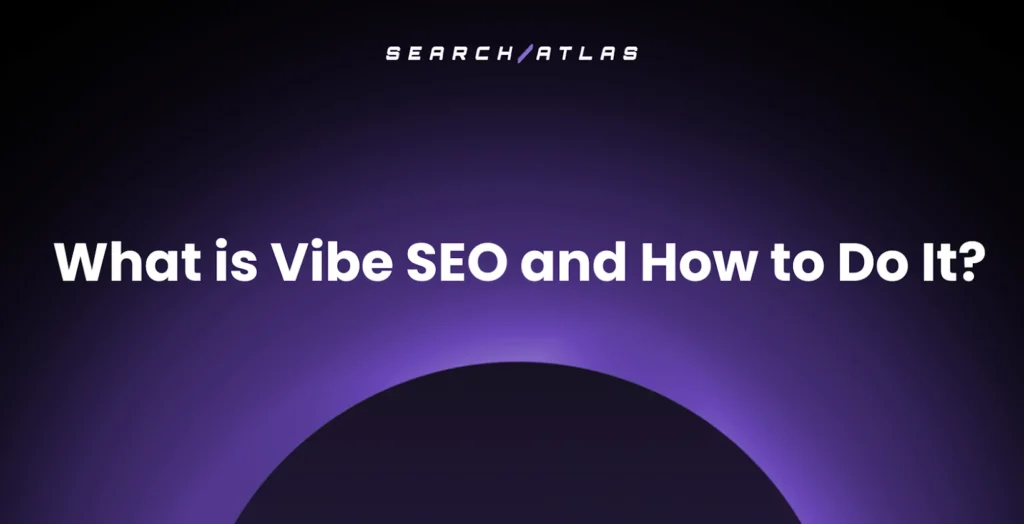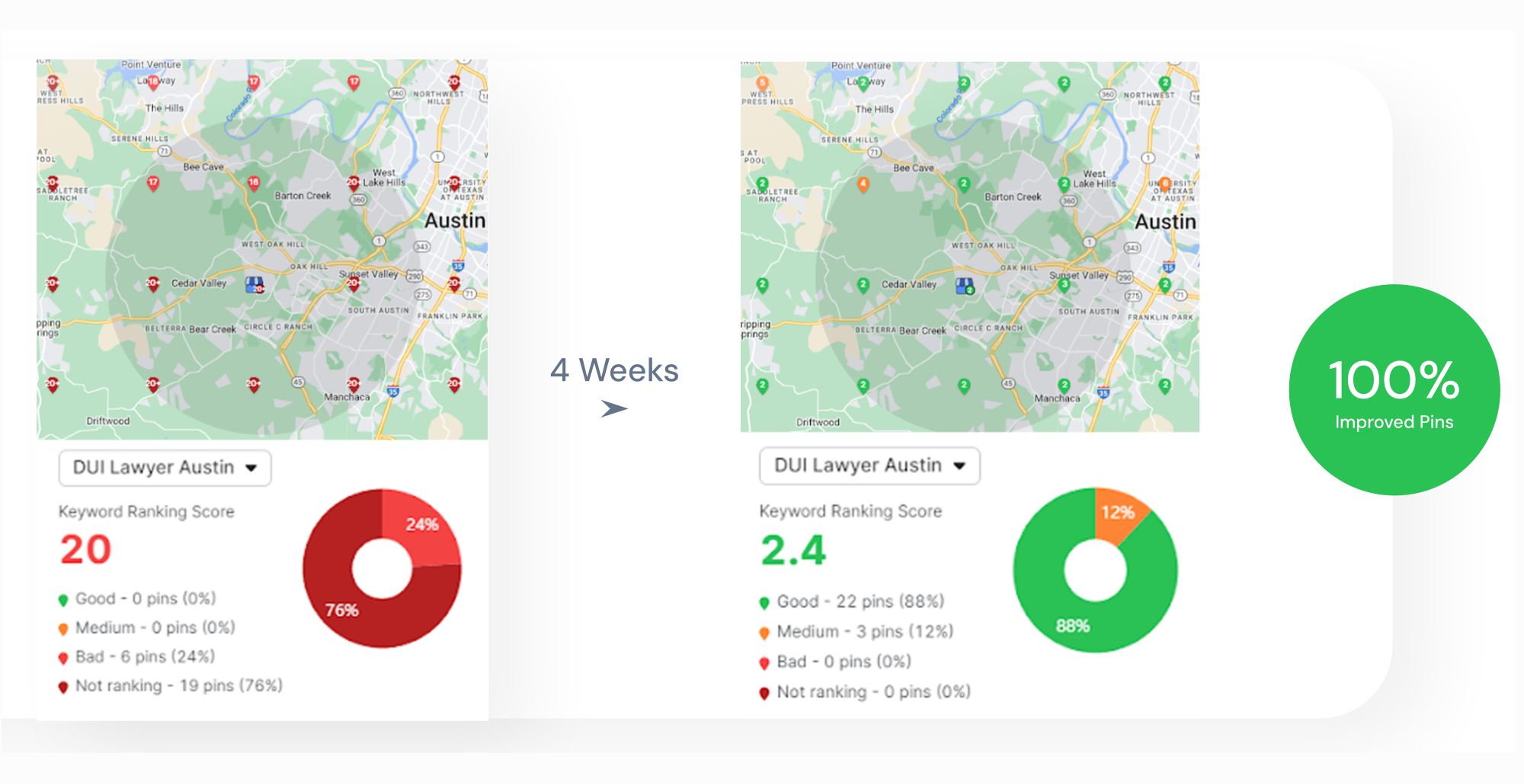Ecommerce SEO optimizes online stores to rank higher in search results and convert shoppers, focusing on product discovery, category optimization, and guiding users from search to checkout. Key challenges include managing thousands of product pages without duplicate content, implementing structured data for Google Merchant Center, balancing site speed with rich product information, competing against Amazon and direct competitors, handling dynamic inventory changes, and targeting search intent across different buying journey stages.
Search Atlas addresses these challenges through OTTO SEO automation that handles technical fixes, product schema implementation, and on-page optimization across entire catalogs. The platform includes competitive analysis tools, WILDFIRE link building, local SEO for multi-location stores, Google Ads management, and integrations for Shopify, WordPress, and Wix with real-time revenue tracking starting at $99/month.
What is SEO for Ecommerce?
SEO for ecommerce is the optimization of online stores to rank higher in search engine results and attract shoppers with purchase intent. Unlike general SEO, it focuses specifically on product discovery and conversion, optimizing product pages, category pages, and site structure to guide users from search query to checkout.
Ecommerce SEO optimizes online stores to rank in search results and attract buyers. It targets high-intent searchers ready to purchase, optimizing product pages, category pages, and site structure to convert search queries into sales.
Ecommerce SEO centers on product-centric architecture using structured data, product feeds, and category hierarchies for search engine parsing. Success is measured by revenue, conversion rates, and customer acquisition cost rather than traffic volume. Sites must integrate with Google Merchant Center, implement structured data, and manage thousands of product pages.
Key challenges of SEO for ecommerce are listed below.
- Scale and Duplicate Content. Managing SEO for thousands of products while avoiding duplicate content issues across similar items and variations.
- Technical Complexity. Balancing site speed, mobile optimization, and user experience with rich product information and high-resolution images.
- Competitive Landscape. Competing against both direct competitors and marketplace giants like Amazon for product-related keywords.
- Intent Matching. Accurately targeting the right search intent at different stages of the buying journey, from research to ready-to-purchase queries.
- Dynamic Inventory. Managing SEO for products that go in and out of stock, seasonal items, and changing catalogs without losing search visibility.
Search Atlas SEO platform and best ecommerce SEO practices help online stores succeed in highly competitive SERPs. Ecommerce SEO helps user experience and motivates purchases by building trust..
What Makes Search Atlas Different for Ecommerce SEO?
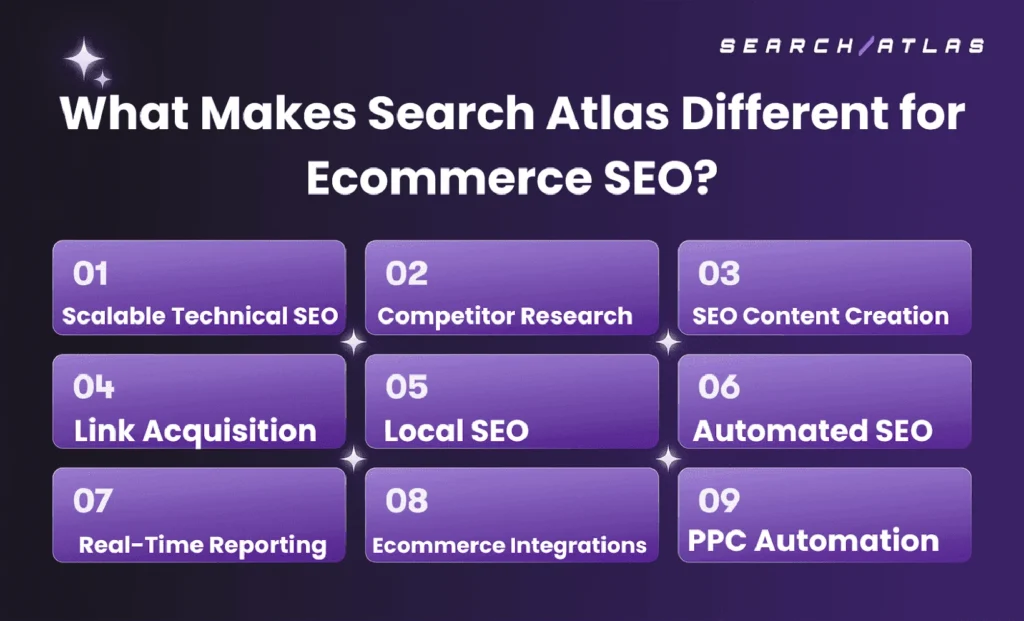
Search Atlas is an SEO platform built for ecommerce challenges. It handles the constant monitoring that ecommerce sites need for product pages and inventory changes. The platform includes tools for optimizing product feeds, managing large catalogs, and tracking competitors. Ecommerce teams use it to automate manual SEO tasks across thousands of products, saving time on bulk optimization and performance monitoring.
The 9 main ways Search Atlas excels for ecommerce SEO are listed below.
1. Scalable Technical SEO
Technical SEO for ecommerce is the optimization of website infrastructure, code, and server configurations to ensure search engines can efficiently crawl, index, and rank product pages and category structures. It focuses on site speed, mobile responsiveness, URL architecture, structured data implementation, crawlability of large product catalogs, handling of inventory changes, and preventing indexation issues like duplicate content and soft 404s from out-of-stock items.
Search Atlas offers specialized tools for ecommerce SEO challenges. OTTO, its AI SEO autopilot, automatically optimizes thousands of product pages without manual work.
The Search Atlas Site Auditor scans entire ecommerce websites to detect technical issues like crawl errors, broken links, redirect chains, and soft 404s from out-of-stock products. It audits content quality across product descriptions, confirms product images include alt tags and optimal formats, and monitors performance using Google Search Console data. Site Auditor provides automated notifications when issues arise and detailed how-to-fix guides for development teams.
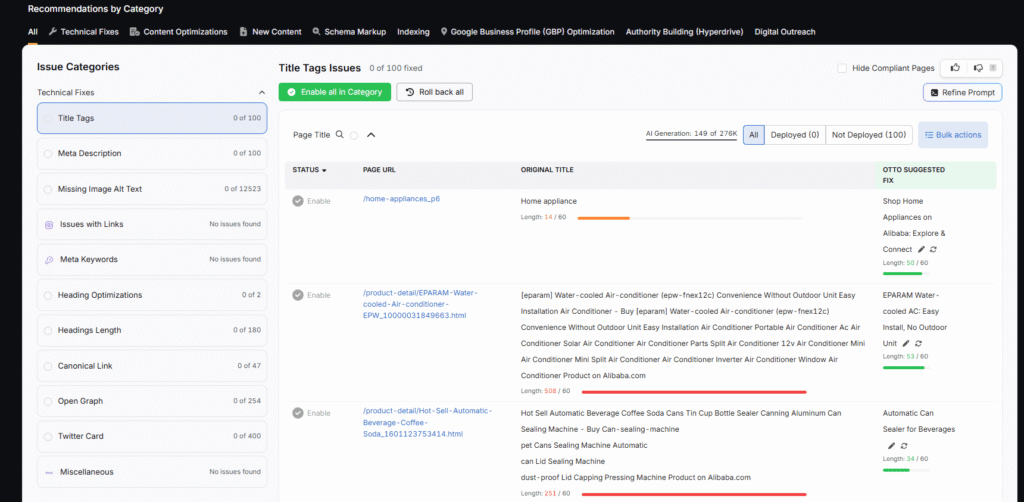
Its schema markup tools handle structured data requirements for product pages. The one-click publishing feature speeds up content updates across large catalogs.
For indexing, Search Atlas provides Instant Indexing and Bulk Index tools that quickly get new products and inventory changes into search results. Its AI blog generator creates content for category pages and buying guides.
To run a technical audit, enter the domain into the Site Auditor, select crawl depth and frequency, and review the results by severity.
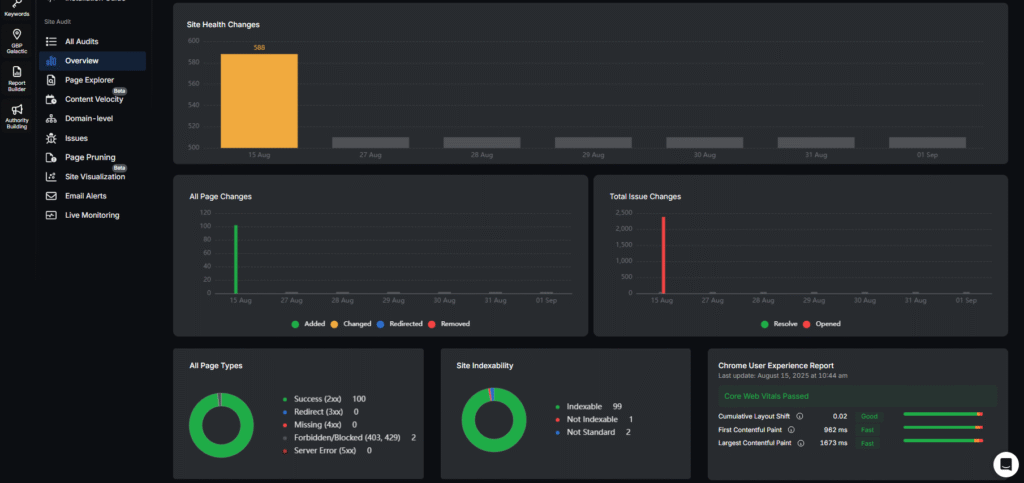
For example, an online furniture retailer detected that product pages were missing Product schema markup and contained images without alt tags. Fixing these issues improved eligibility for product rich snippets in search results and prevented accessibility compliance risks.
2. Ecommerce Competitor Research
Competitor research for ecommerce SEO means studying rival online stores to see how they optimize for search engines. You analyze which competitors rank for your product keywords, how they structure their product pages, what content they create, and how they build authority through backlinks.
What matters most is understanding their product keyword rankings, category page organization, product page optimization, content strategy for buying guides, backlink strength, and technical SEO setup. This helps you spot opportunities they’re missing and tactics worth copying.
Search Atlas provides 4 main competitive intelligence tools that reveal ecommerce marketing gaps. The 4 tools are listed below.
1. The Search Atlas Keyword Gap Tool compares keyword rankings across up to 6 competitors to identify high-value product search terms and commercial keywords your site is missing.
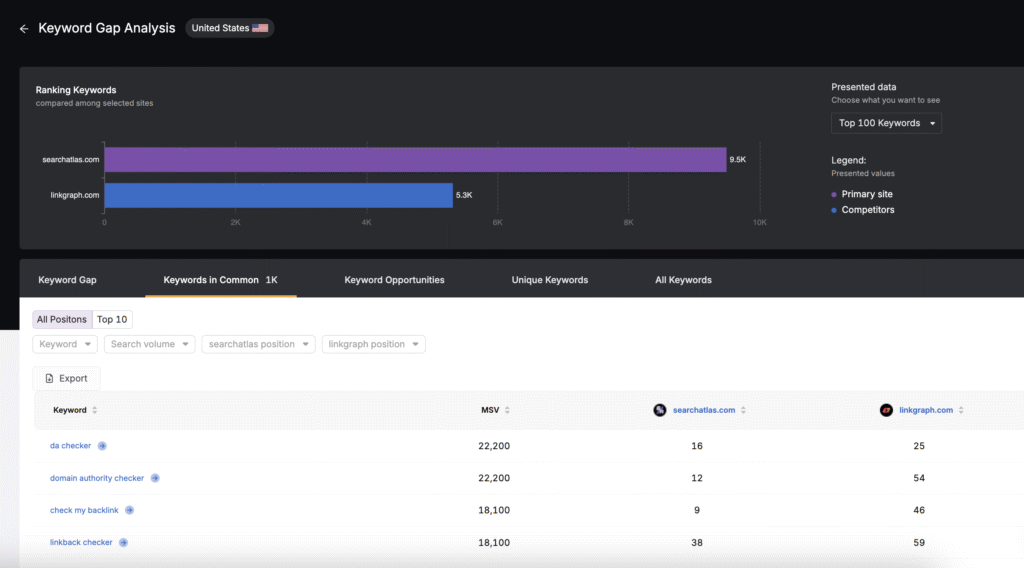
2. The Search Atlas Backlink Gap Analysis finds referring domains that link to your competitors but not your site, revealing untapped link building opportunities from relevant industry sources.
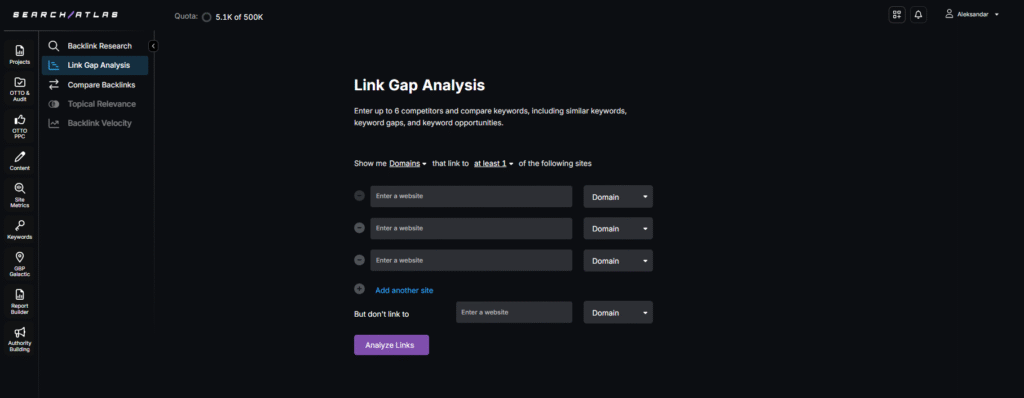
3. The Search Atlas Site Explorer with Domain Power (DP) measures your site’s overall authority against competitors using a proprietary metric that tracks ranking share and competitive strength.
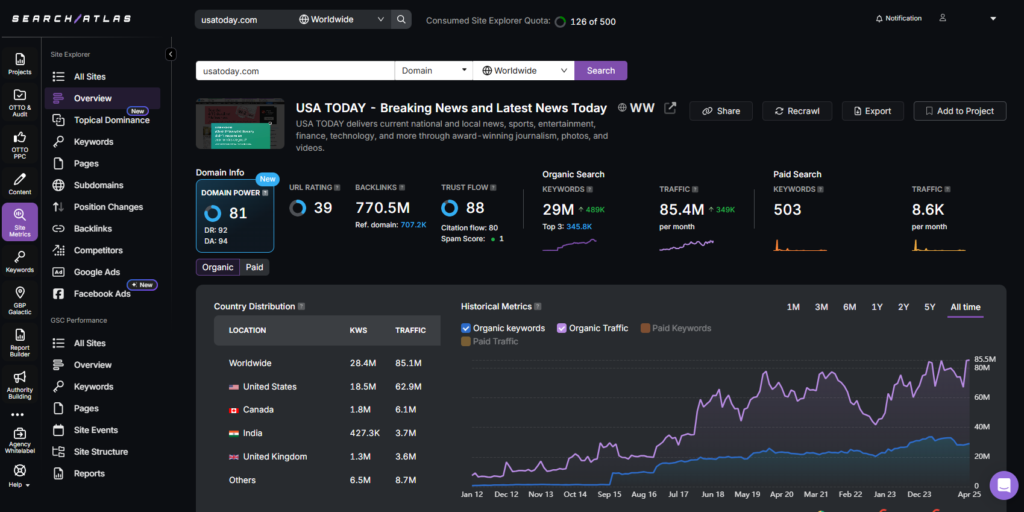
4. The Search Atlas Topical Dominance Tool creates a domain-wide heatmap showing how completely you cover product categories and topics compared to competitors, measuring gaps in your content strategy.
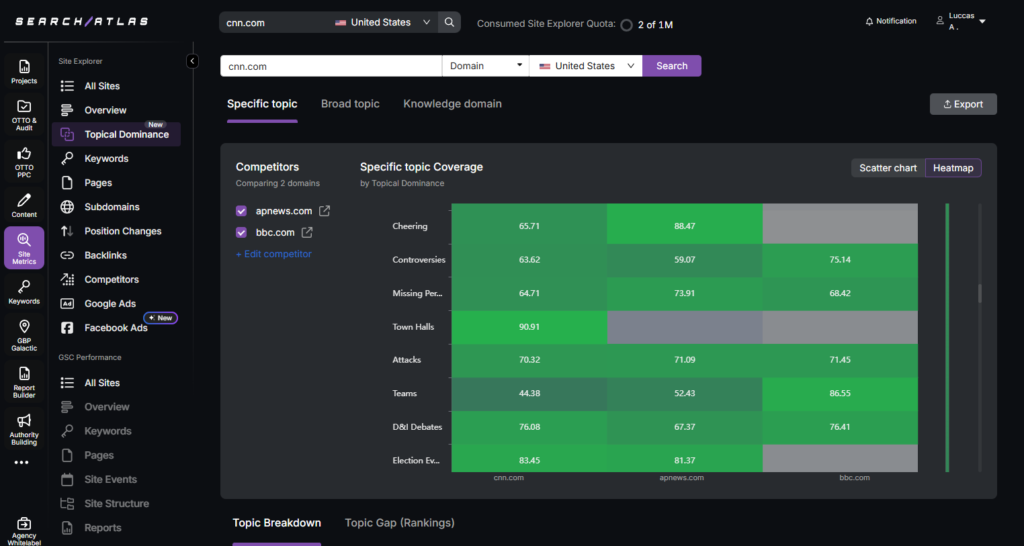
Access these competitive intelligence tools through the Search Atlas dashboard by entering your domain alongside competitor URLs. The platform helps identify keyword gaps and backlink opportunities, then guides content creation and link building strategies to capture traffic currently going to competitors.
3. Ecommerce SEO Content Creation
Ecommerce SEO content creation is the systematic process of developing optimized written and multimedia materials specifically for online retail websites. This involves researching target keywords, understanding customer search behavior, and crafting content that simultaneously ranks in search engines and drives product sales.
Marketers need to plan content architecture, write product descriptions and category overviews, develop supporting educational materials, and optimize technical elements like meta tags, structured data, and internal linking structures.
Ecommerce SEO content creation requires balancing search visibility with conversion optimization, ensuring every piece of content serves both discovery and sales objectives while maintaining consistency across potentially thousands of product pages and categories.
Search Atlas supports ecommerce SEO content creation with 4 core tools listed below.
1. The Search Atlas Content Planner creates keyword clusters from seed keywords and produces complete plans in just a few minutes.
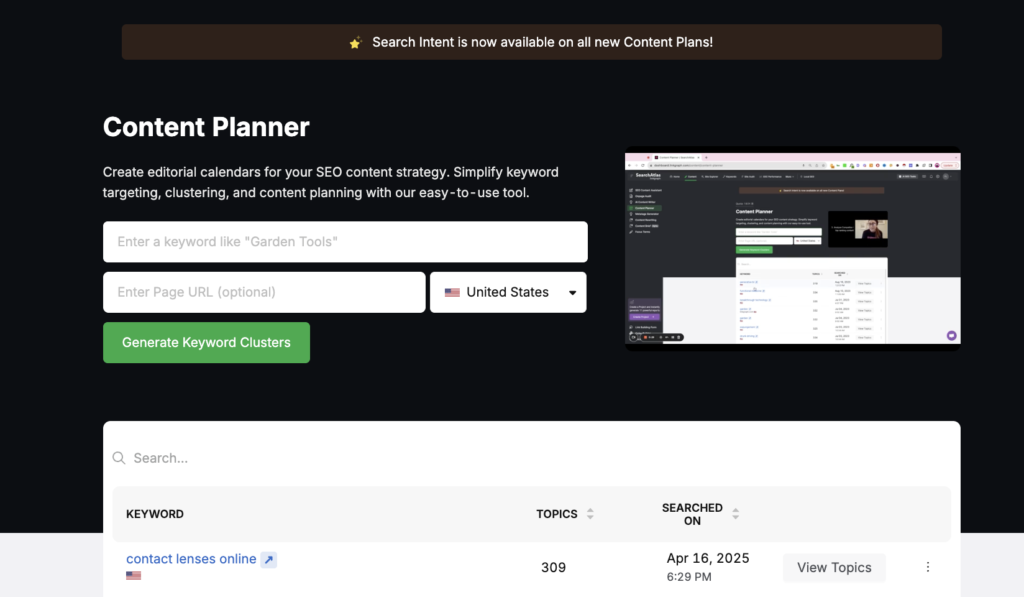
2. The Search Atlas Content Genius generates structured drafts based on real-time SERP data and keyword clusters.
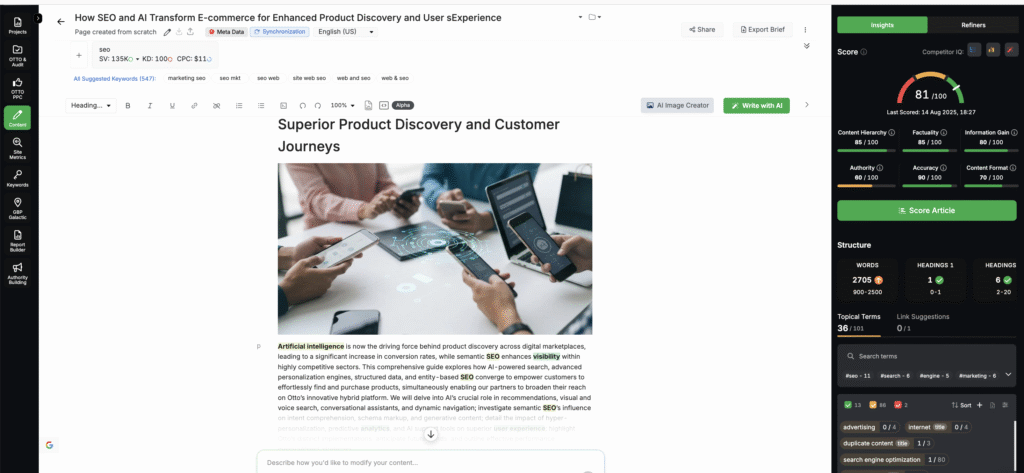
3. The Search Atlas SCHOLAR audits content for semantic structure, information gain, and other parameters using Google-aligned scoring models.
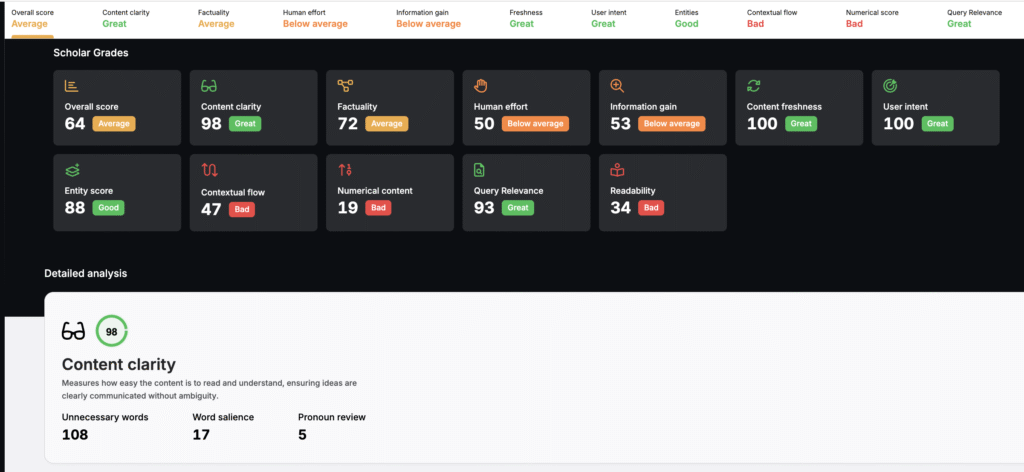
4. The Search Atlas Landing Page Generator creates location-specific pages fast, helping you rank more easily in different regions.
The Search Atlas Content Planner supports ecommerce campaign planning at scale. The Search Atlas Content Planner expands a root keyword, such as “wireless headphones,” into 300+ product clusters sorted by buyer intent.
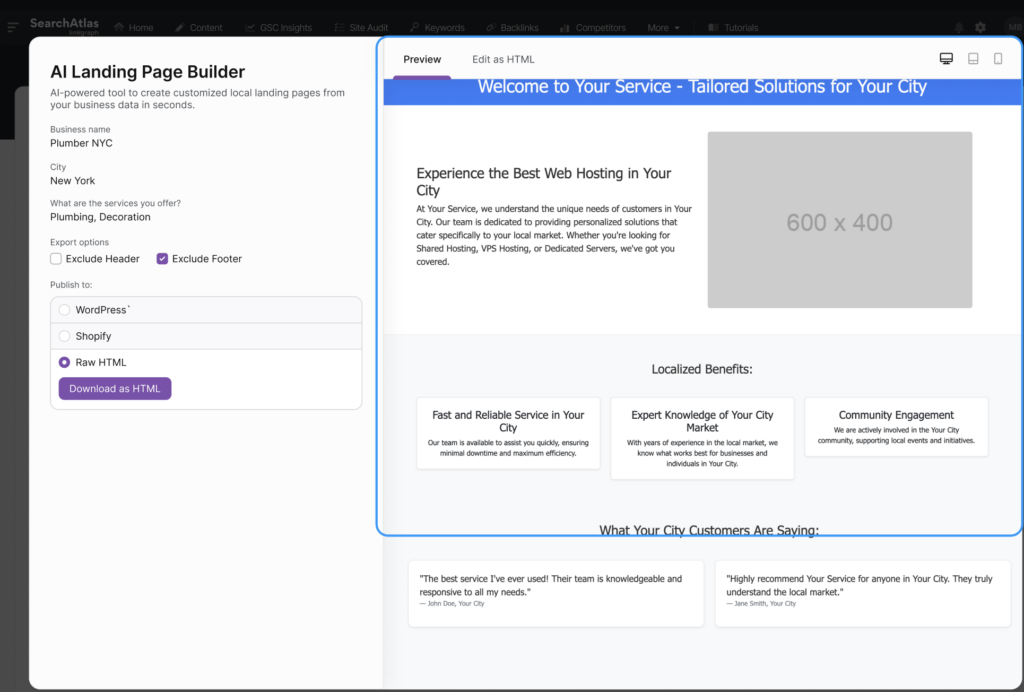
The clusters Search Atlas Content Planner makes include informational, comparative, and transactional ecommerce themes, which help marketing teams map an entire content funnel.
The Search Atlas Content Genius then creates blogs and pages that target high-intent queries such as “best wireless headphones for running” or “how to choose noise-cancelling headphones.” Each draft the Search Atlas Content Genius creates includes structured product headings, ecommerce semantic variation, and internal linking prompts based on real shopping search results.
Use Content Genius and Content Planner together to achieve the ecommerce SEO content goals listed below.
- Build landing pages for product categories, brand collections, or seasonal promotions.
- Publish shopping resource hubs on buying guides, product comparisons, or usage tutorials.
- Plan and execute multi-stage ecommerce content workflows based on customer journey and purchase complexity.
4. Link Acquisition for Ecommerce
Search Atlas offers two link building systems that help ecommerce businesses get quality backlinks without the usual time investment.
1. WILDFIRE handles link exchanges automatically using a network of trusted ecommerce and industry websites. Instead of spending weeks finding and checking potential link partners, this system uses pre-approved websites that match your products. The automated process gives you steady link building without constant outreach work.
2. Digital PR and Outreach Tool manages your media campaigns and journalist outreach on a large scale. This tool keeps track of all your media contacts and automatically sends follow-up messages, solving the problem of manually managing hundreds of potential media relationships.
WILDFIRE works inside the OTTO SEO system and connects your product pages with relevant industry websites. You get one quality backlink for every two links you give to matched partners. The system checks each website for quality, relevance, and trustworthiness before making exchanges.
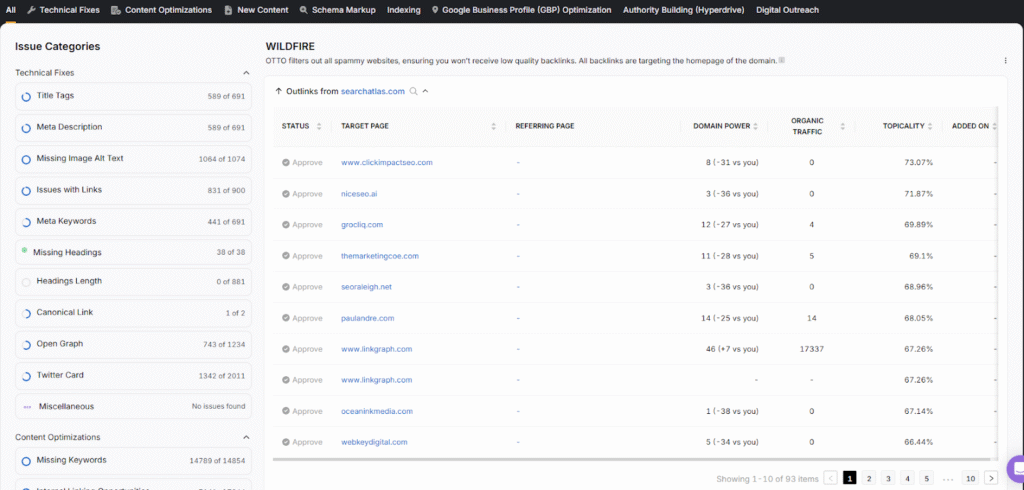
WILDFIRE helps link builders get links to product pages like “wireless audio equipment,” use different anchor text for important pages, and build website authority across different product areas like electronics, home goods, and lifestyle products.
The Digital PR tool helps you reach out to journalists using your product launches, industry data, research, or expert opinions from your team. You upload your media contacts or use the tool’s built-in media databases to pitch stories and get coverage from trusted publications and news sites.
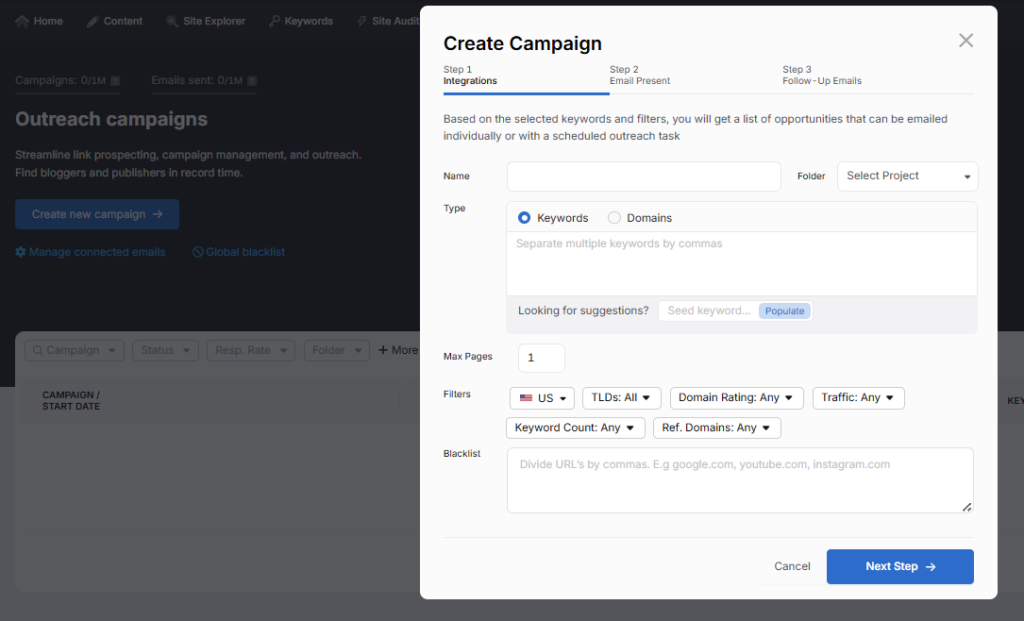
5. Local SEO for Stores Targeting Multiple Locations
Local SEO for ecommerce involves optimizing online retail visibility for location-based consumer searches and Google Maps rankings. Shoppers search locally for queries like “electronics store near me” or “furniture shop [city]” on mobile devices. Retailers must manage accurate business listings and Google Business Profiles (GBP) to appear in Google Maps and local search results.
For e-commerce businesses that have a physical presence, such as brick-and-mortar stores, local SEO is crucial for attracting nearby customers. Even companies without physical storefronts can benefit from local SEO if they serve specific geographic areas, offer local delivery, or have strong regional brand recognition.
Search Atlas gives online retailers full control over local SEO, including visibility, Google Business Profile management, and accurate listings through one platform. Ecommerce stores stay competitive in every area with Search Atlas’s complete local SEO toolkit.
Search Atlas Local SEO Heatmaps display exactly where your retail business ranks for keywords like “electronics store [city]” or “furniture shop near me” across the map grid, neighborhood by neighborhood.
The Search Atlas Citation Builder updates and syncs your business name, address, and phone information across all major retail directories and data sources, fixing inconsistencies that damage your local ecommerce rankings.
Retail businesses use the Search Atlas GBP Automations to schedule product posts, respond to customer questions, and handle reviews with AI-powered replies that align with their brand tone.
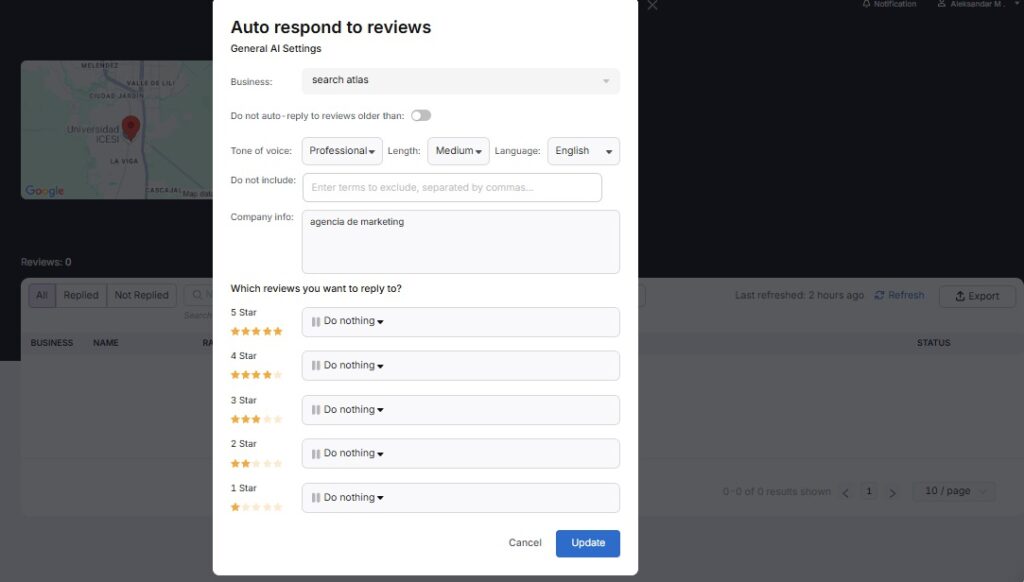
Search Atlas local SEO tools like the Search Atlas GBP Management Software eliminate hours of tedious tasks, reveal fresh opportunities to boost store map presence, and protect your reputation when customer feedback or inquiries arrive.
Ecommerce retailers who use Search Atlas experience more customer inquiries, improved local rankings, and greater trust with area shoppers because all local search elements are controlled from a single dashboard.
6. Automated SEO Execution with OTTO SEO
OTTO SEO is an AI assistant that executes SEO tasks at scale across ecommerce websites. OTTO SEO applies technical fixes, on-page updates, structured data, and link placements with precision, which reduces developer dependency and human error.
For ecommerce sites with thousands of product pages, categories, and variations, manual SEO optimization becomes impossible to manage effectively. OTTO SEO solves this scalability challenge by automating repetitive tasks.
Most SEO tools diagnose ecommerce issues, while OTTO fixes them. In ecommerce SEO, where product information accuracy and conversion optimization matter across massive inventories, Search Atlas OTTO SEO enforces structured deployment based on rulesets tied to retail best practices.
OTTO supports large-scale ecommerce SEO implementation in 5 critical ways listed below.
1. Automates page-level SEO fixes like meta tags, title formatting, product image alt text, and canonical tags across thousands of product pages simultaneously.
2. Applies structured data for product reviews, pricing information, and inventory details across entire ecommerce catalogs and landing pages.
3. Maintains product content structure by adding missing headers, correcting heading hierarchy, and embedding commerce keyword data sourced from Google Search Console across all product variations.
4. Deploys safe retail link exchanges with WILDFIRE to and from ecommerce-related domains that pass spam and relevancy checks at scale.
5. Validates each implementation using diagnostic checks that confirm HTML accuracy, search indexation readiness, and execution status across the entire site.
OTTO SEO reduces ecommerce SEO execution time by 80% and protects online stores from SEO blind spots that lead to ranking drops or conversion failures. For large ecommerce sites managing extensive product catalogs, OTTO ensures no page gets overlooked while maintaining consistent optimization standards across the entire inventory.
7. Real-Time Reporting for Ecommerce SEO Campaigns
Search Atlas delivers real-time SEO performance reports built for ecommerce marketing teams that demand data accuracy, speed, and executive-grade clarity.
Ecommerce SEO campaigns depend on sales accountability. Search Atlas transforms thousands of retail data points from Google Search Console, Ads, Local SEO, Rank Tracking, and customer behavior into clear reports that demonstrate ROI and identify next strategic growth actions.
You monitor performance across product categories, brand collections, or regional shopping queries using the Search Atlas reporting system that surfaces what actually drives revenue and conversions.
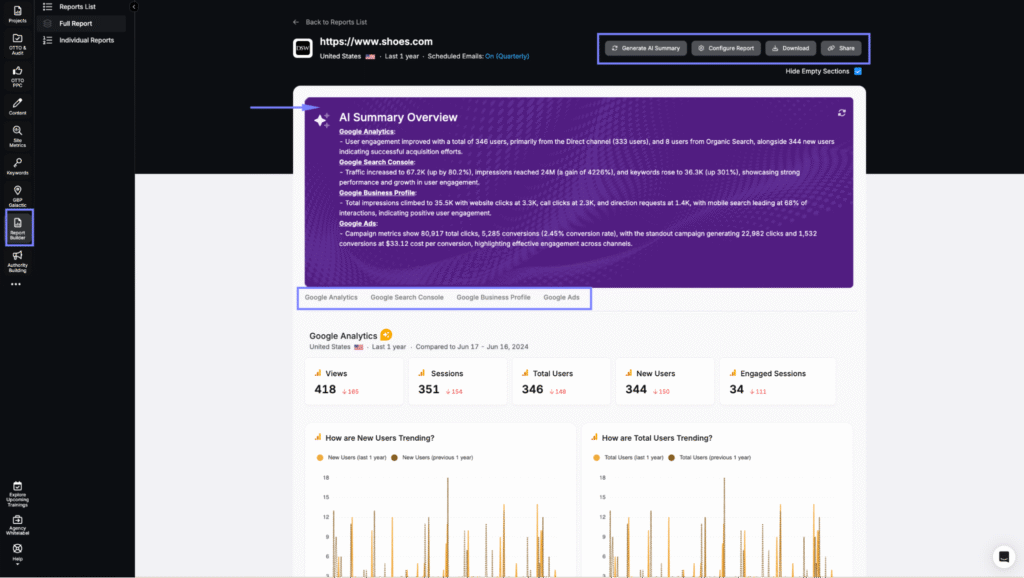
The way the Search Atlas reporting stack supports ecommerce SEO is explained below.
- Executive Dashboards with Sales Traffic and Product Keyword Growth. Visualize month-over-month changes across organic clicks, ranking product keywords, and shopping SERP performance. Identify spikes connected to specific promotional campaigns or product launches within seconds.
- Live Google Search Console Integration. Track active commerce keywords by position, impressions, and clicks. Filter data by product category, brand line, or shopping intent, with automated alerts for position drops, traffic surges, or buyer behavior shifts.
- Ecommerce Ad Campaign Performance Analysis. Connect Google Ads shopping campaigns directly into the SEO dashboard to analyze cost-per-click, customer conversions, and view-through sales. Retail marketers track ROI down to the product keyword and purchase funnel stage.
- Device and Platform Insights. Understand how mobile, desktop, and tablet users interact with product pages and checkout flows. Optimize for device-specific shopping behavior and ensure seamless experiences across all interfaces.
- Product Keyword Rank Tracking & Market Volatility Monitoring. Monitor essential keywords tied to bestselling products, seasonal items, or competitor brands. Search Atlas detects ranking losses and recommends recovery strategies in real time, even when product visibility drops completely.
- Local & Google Business Profile Analytics. Track impressions, customer calls, clicks, and store visits for physical retail locations or region-specific product offerings. Ecommerce brands with multiple locations see what drives actual customer engagement in each market.
8. Integrations With Ecommerce Platforms
Search Atlas integrates directly with Shopify, Wix, and WordPress to provide advanced SEO automation that these platforms lack natively. While these platforms build and run online stores effectively, they don’t offer comprehensive SEO automation.

The Shopify integration allows store owners to use AI-powered SEO tools without leaving their dashboard. One-click publishing creates optimized product descriptions, blog posts, and category pages that drive targeted traffic.
OTTO automatically optimizes product pages, meta descriptions, and store structure following Shopify best practices and Google’s algorithm requirements. This removes manual SEO work while maintaining consistent performance.
Search Atlas provides ecommerce-specific features unavailable in standard platform tools: automatic product schema markup, inventory-aware content generation, and competitive price monitoring. These capabilities address unique ecommerce SEO challenges while working seamlessly within existing platform workflows.
The same integration quality extends to Wix and WordPress, ensuring consistent performance across all major ecommerce platforms.
9. Google Ads Automation Tools
OTTO Google Ads delivers complete Google Ads automation without manual intervention. Upon connection, it automatically creates campaigns, identifies high-performance keywords, and generates ad copy that drives conversions.
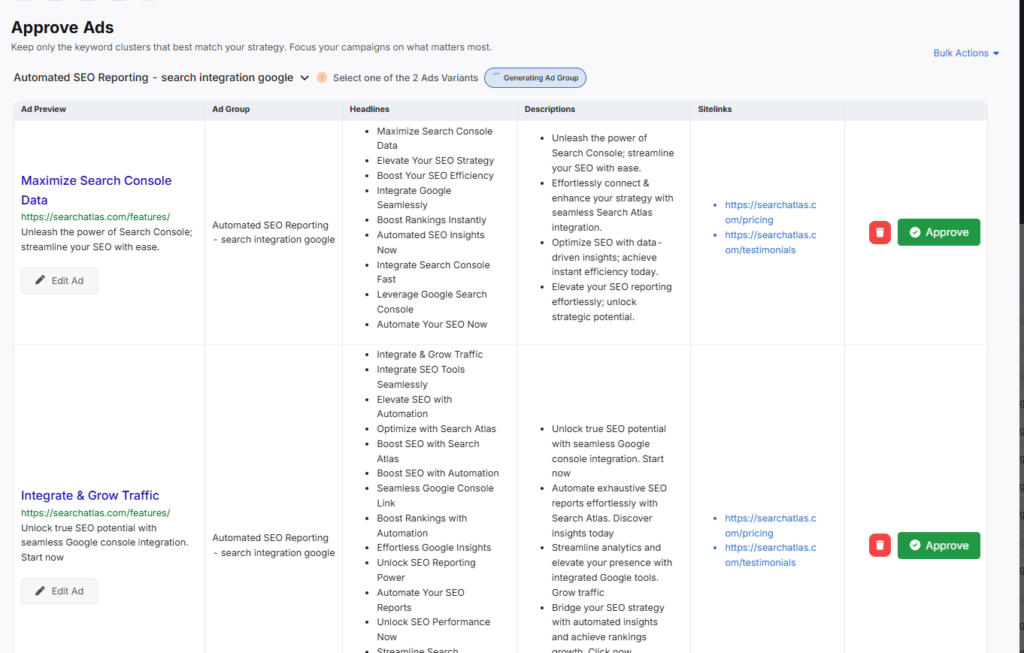
While SEO captures organic traffic over time, PPC delivers immediate visibility and sales for new products, seasonal campaigns, and competitive keywords. Search Atlas provides both SEO and PPC automation in one platform.
OTTO manages Google Ads campaigns while the SEO tools optimize organic rankings, creating comprehensive search coverage. Ecommerce businesses get unified data across both channels, eliminating the complexity of managing separate tools and vendors.
For retailers managing multiple product lines and seasonal campaigns, this integration removes manual campaign work while maintaining precision targeting across their catalog. Teams can focus on growth initiatives rather than routine optimization tasks, while maximizing return on advertising spend through coordinated SEO and PPC strategies.
Why Ecommerce Teams Trust Search Atlas
Ecommerce teams trust Search Atlas because the platform consolidates scattered SEO tasks into one unified retail optimization system.
The primary reasons why online retailers choose Search Atlas for ecommerce SEO are outlined below.
- Teams eliminate hours spent on product audits and page optimization because OTTO SEO automates technical fixes, product schema implementation, and catalog publishing.
- Online stores achieve consistent rankings across product categories because Search Atlas builds topical authority and semantic relevance at scale.
- Product content drives conversions because SCHOLAR evaluates readability, purchase intent alignment, and competitive positioning.
- Link building campaigns generate sustainable results because WILDFIRE and PR tools acquire high-quality backlinks from retail and industry publications.
- Ecommerce stakeholders access actionable insights because reporting dashboards track product rankings, revenue attribution, and customer acquisition across all campaigns.
Search Atlas minimizes SEO complexity and accelerates growth for competitive ecommerce brands.
How Much Does Search Atlas Cost?
Search Atlas offers SEO plans for ecommerce businesses of all sizes, with pricing starting at $99/month. Every plan includes complete platform access and a 7-day free trial.
The Search Atlas pricing options are outlined below.
- The Starter plan supports individual retailers, emerging online brands, or internal teams managing a single ecommerce store. It provides all essential SEO tools for $99/month.
- The Growth plan supports marketing teams handling multi-category, multi-location retail operations. It expands usage limits and activates advanced automation features for $199/month.
- The Pro plan supports agencies and enterprise teams executing large-scale, high-volume ecommerce SEO campaigns. It offers unlimited GSC connections and white-labeled reporting dashboards for $399/month.
- Enterprise solutions are available for major retailers requiring custom integrations, specialized reporting, and compliance configurations. Custom pricing is available upon consultation.
All plans provide access to OTTO SEO, Site Auditor, Content Genius, SCHOLAR, WILDFIRE, and every other platform feature. No additional fees or surprise charges exist.
Begin your free trial today and discover how Search Atlas helps ecommerce teams achieve dominant search visibility with measurable results.




